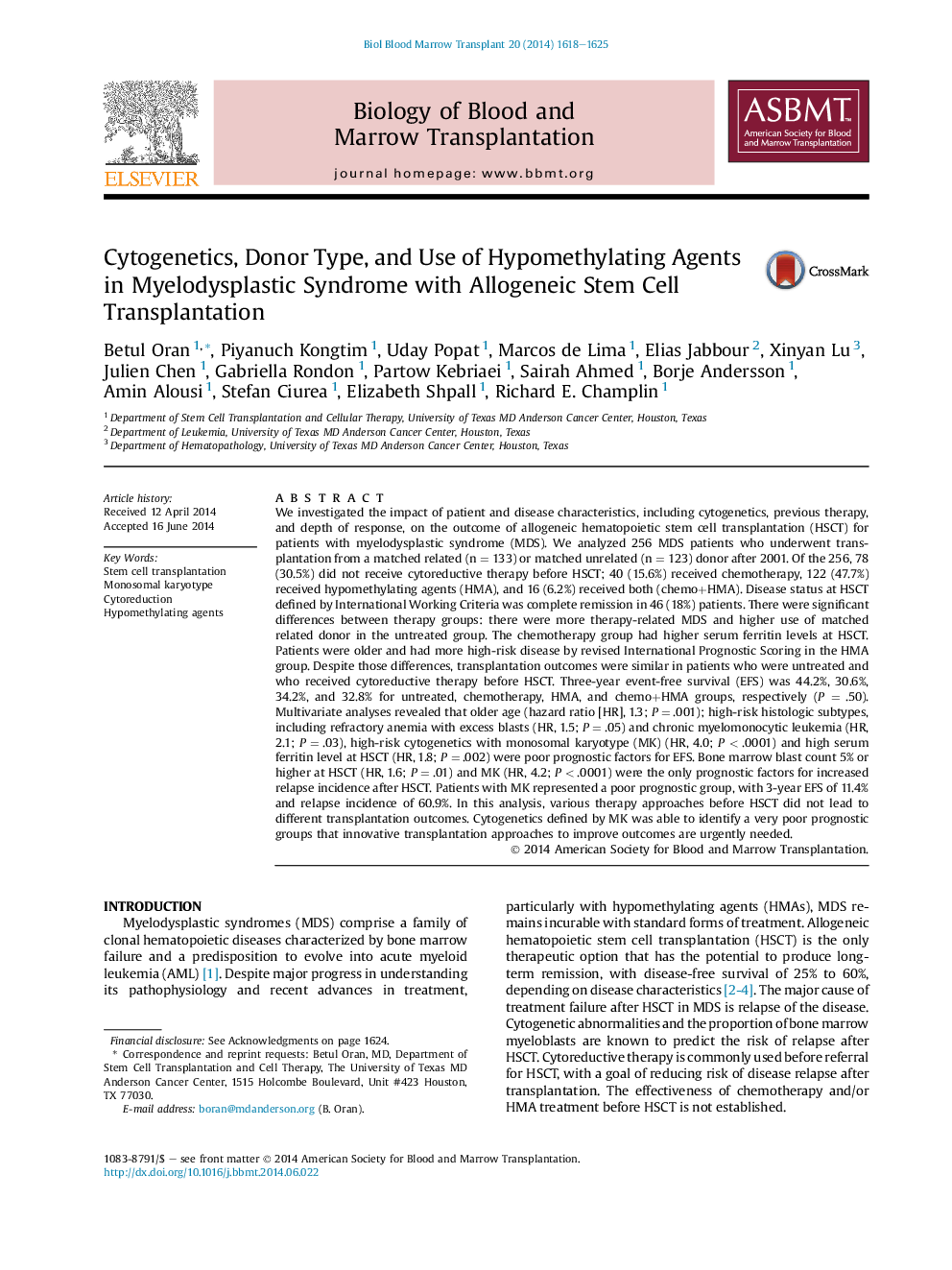| کد مقاله | کد نشریه | سال انتشار | مقاله انگلیسی | نسخه تمام متن |
|---|---|---|---|---|
| 2104155 | 1546275 | 2014 | 8 صفحه PDF | دانلود رایگان |
We investigated the impact of patient and disease characteristics, including cytogenetics, previous therapy, and depth of response, on the outcome of allogeneic hematopoietic stem cell transplantation (HSCT) for patients with myelodysplastic syndrome (MDS). We analyzed 256 MDS patients who underwent transplantation from a matched related (n = 133) or matched unrelated (n = 123) donor after 2001. Of the 256, 78 (30.5%) did not receive cytoreductive therapy before HSCT; 40 (15.6%) received chemotherapy, 122 (47.7%) received hypomethylating agents (HMA), and 16 (6.2%) received both (chemo+HMA). Disease status at HSCT defined by International Working Criteria was complete remission in 46 (18%) patients. There were significant differences between therapy groups: there were more therapy-related MDS and higher use of matched related donor in the untreated group. The chemotherapy group had higher serum ferritin levels at HSCT. Patients were older and had more high-risk disease by revised International Prognostic Scoring in the HMA group. Despite those differences, transplantation outcomes were similar in patients who were untreated and who received cytoreductive therapy before HSCT. Three-year event-free survival (EFS) was 44.2%, 30.6%, 34.2%, and 32.8% for untreated, chemotherapy, HMA, and chemo+HMA groups, respectively (P = .50). Multivariate analyses revealed that older age (hazard ratio [HR], 1.3; P = .001); high-risk histologic subtypes, including refractory anemia with excess blasts (HR, 1.5; P = .05) and chronic myelomonocytic leukemia (HR, 2.1; P = .03), high-risk cytogenetics with monosomal karyotype (MK) (HR, 4.0; P < .0001) and high serum ferritin level at HSCT (HR, 1.8; P = .002) were poor prognostic factors for EFS. Bone marrow blast count 5% or higher at HSCT (HR, 1.6; P = .01) and MK (HR, 4.2; P < .0001) were the only prognostic factors for increased relapse incidence after HSCT. Patients with MK represented a poor prognostic group, with 3-year EFS of 11.4% and relapse incidence of 60.9%. In this analysis, various therapy approaches before HSCT did not lead to different transplantation outcomes. Cytogenetics defined by MK was able to identify a very poor prognostic groups that innovative transplantation approaches to improve outcomes are urgently needed.
Journal: - Volume 20, Issue 10, October 2014, Pages 1618–1625
